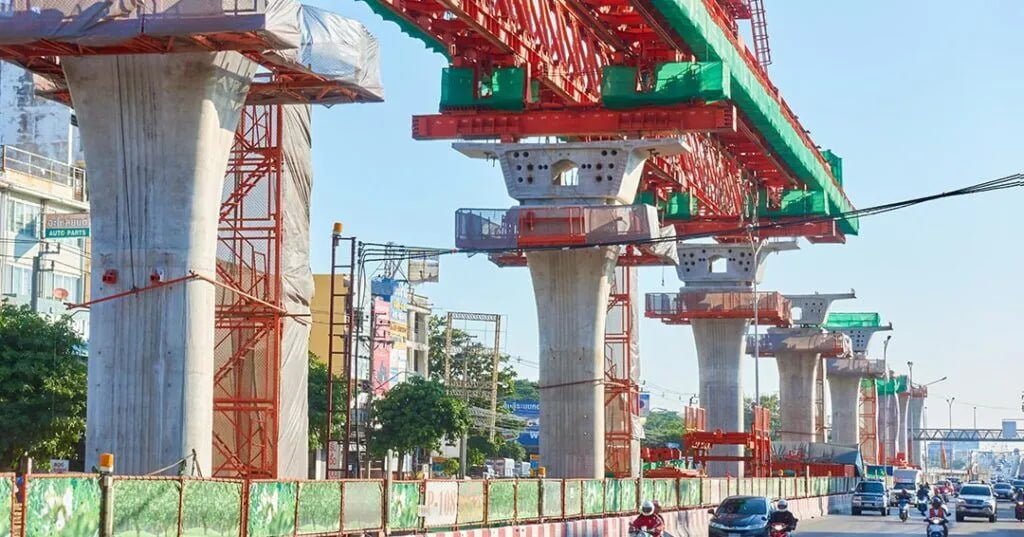Infrastructure development is a key factor in Thailand’s rapid growth. The government’s renewed focus on expanding the nation’s transport and energy systems demonstrates a commitment to fostering long-term economic prosperity. With significant investments planned, Thailand is paving the way for a better future. Infrastructure Development Thailand can help with the connectivity, better job prospects, and sustainable innovations. Let’s take a look at the details below!
Government Investment and Economic Growth
In a bold move, the Thai government has allocated 652 billion baht (around $17 billion) to kick-start 150 infrastructure projects over the next two years. This includes significant investment in the railway sector, which will connect major regions of the country more efficiently. A prime example is the Thai-Chinese mega high-speed railway, which will enhance travel and trade opportunities across the region. This initiative highlights how infrastructure plays a crucial role in driving economic growth and connecting communities.
Transport Infrastructure Expansions

Thailand’s transport infrastructure is also set for a major boost. Between 2024 and 2025, the government plans to invest $19.4 billion in 150 key transport projects. These projects will significantly improve the road and rail networks, which are vital for supporting the movement of goods and people. Not only domestically but also for those across borders.
Additionally, the Greater Mekong Subregion Highway Expansion Phase 2 will upgrade over 142 kilometers of highways, further improving regional connectivity and economic integration with neighboring countries.
Energy Sector Investments and Sustainability
Apart from transport, Thailand is also focusing on energy infrastructure. The Transmission System Improvement Project, with an investment of 94 billion baht, will enhance the country’s energy security. It will expand its capacity to handle renewable energy. This is crucial for the growing industrial and tourism sectors, ensuring that the country is prepared for future energy demands. Such projects underline the commitment to integrating sustainable solutions into Infrastructure Development Thailand plans.
High-Speed Rail and Plastic Roads: A Glimpse of the Future
Among the key transport initiatives is the Bangkok-Ubon Ratchathani high-speed railway, set to revolutionize travel times by reducing the journey from 12 hours to just 2 hours. This project, costing approximately 37.5 billion baht ($1.1 billion), will boost tourism and improve trade.
Meanwhile, Thailand is also taking a unique approach with its Plastic Roads Initiative. It involves mixing recycled plastic with asphalt to build roads. This innovative solution not only helps with waste management but also reduces costs and benefits the environment. Every kilometer of these roads could use up to 5 tonnes of plastic waste.
Job Creation and Economic Impact
These infrastructure projects will have a direct positive impact on Thailand’s economy. By 2025, it is expected that over 1 million jobs will be created due to these developments, particularly in the construction sector. Such a positive growth will help stabilize the economy while providing opportunities for workers across various industries. Road expansions, high-speed rail developments, and energy projects all contribute to a stronger economy and better connectivity for the entire country.
The bold Infrastructure Development Thailand investments demonstrate the government’s dedication to long-term economic growth and sustainability. By improving transport networks, enhancing energy security, and adopting innovative solutions like plastic roads, the nation is positioning itself as a leader in modern infrastructure development. As these projects take shape, Thailand is boosting its economy and creating more opportunities for its citizens.

